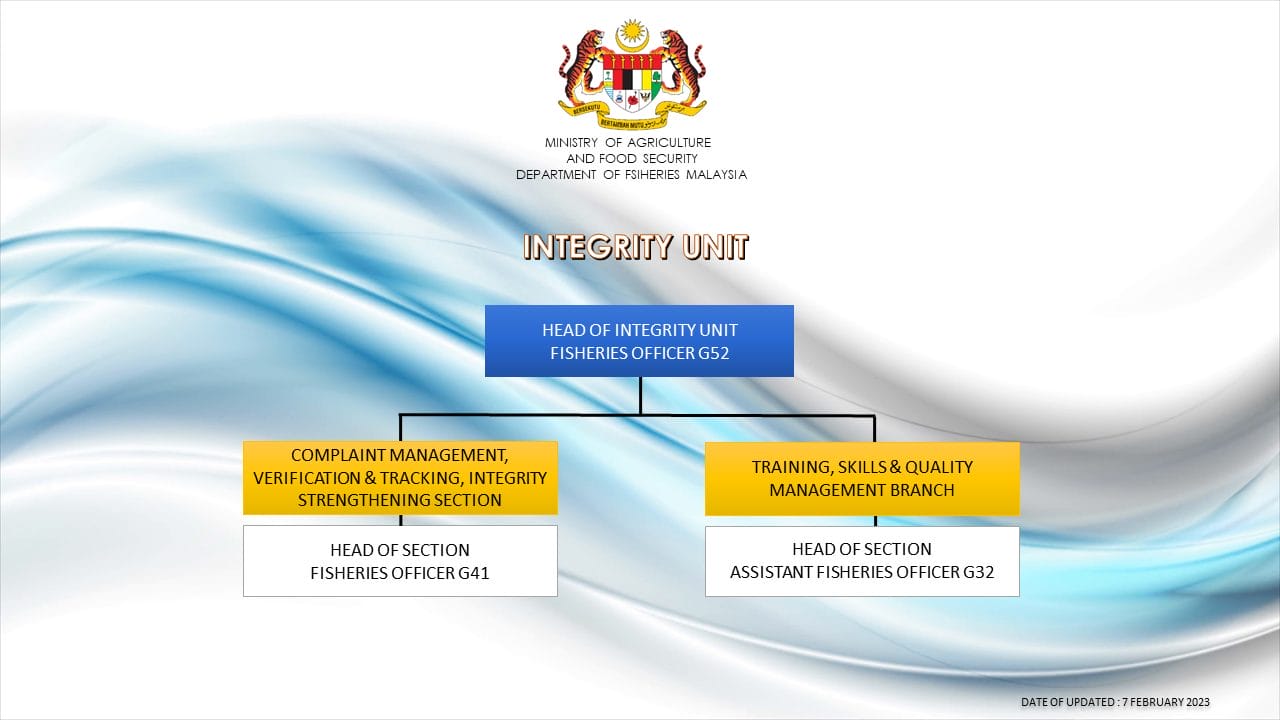The Integrity Unit is responsible for managing and implementing initiatives to institutional integrity, prevention, compliance, misconduct detection and punitive action in a more focused, planned, efficient and optimal manner, in line with Service Circular No. 6 of 2013 that includes six (6) core functions, namely:
Governance
The function of Governance is to ensure good governance is implemented while addressing issues of integrity, especially related to corrupt behavior, malpractice and abuse of power in the agency.
Complaints Management
Complaints Management means the management of the receipt of information/complaints on criminal misconduct, abuse of power, malpractice and violation of the agency’s code of conduct and ethics to ensure action is taken on each information/complaint. Accordingly, efficient complaint management must be implemented by officers stationed in the Complaints Management Sub-Unit. The functions carried out under Complaints Management are not limited to supervising and monitoring the management of complaint receipt, but UI officers stationed in this Sub-Unit are also responsible for ensuring the efficiency of the complaints system is implemented.
Strengthening Integrity
Strengthening Integrity is one of the important responsibilities to ensure the cultivating, institutionalisation and implementation of integrity in the agency.
Compliancy
Monitoring of the compliancy with laws and regulations in force is necessary in every public agency to ensure that there is no space and opportunity for officers and staff to commit offenses in terms of crime or code of conduct and ethics.
Detection & Verification
The UI is responsible for detecting and verifying complaints of criminal misconduct, breaches of the code of conduct and organisational ethics received and subsequently ensuring appropriate follow-up action is taken.
Disciplinary
Perform the secretarial function of the Disciplinary Board based on the Public Officers (Conduct and Discipline) Regulations 1993 and disciplinary management work.








